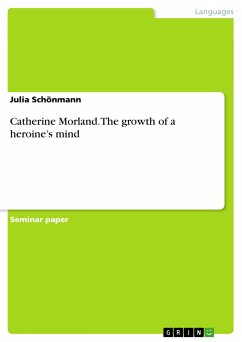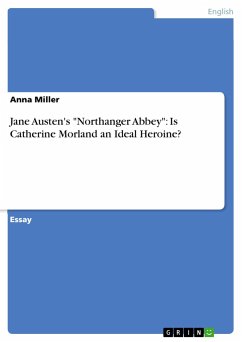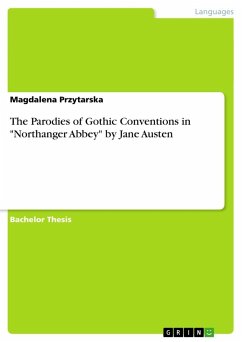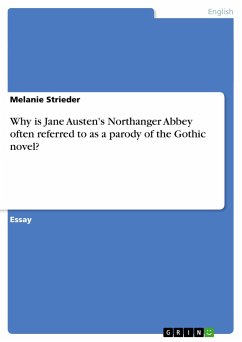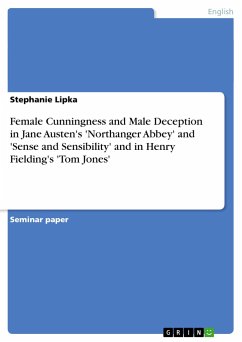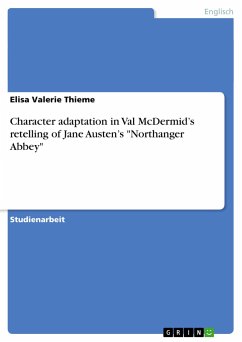Seminar paper from the year 2013 in the subject Didactics - English - Literature, Works, grade: 1,3, University of Coimbra (Faculdade de Letras), language: English, abstract: "No one who had ever seen Catherine Morland in her infancy would have supposed her born to be an heroine" . The first sentence of Jane Austen's novel "Northanger Abbey" on its own already suggests that Catherine Morland is, or will be, an heroine, but truly an unlikely one. It notes the future gap between the life of an ideal heroine in a novel and the flawed main character. And when thinking of the common meaning of an heroine in gothic novels, one does indeed expect something different than a young lady's troublesome way to maturity. Catherine Morland does not have the childhood of an elegant woman whom is expected to become a heroine. At age 10, she's described as a girl who preferred cricket to dolls and who liked nothing better than rolling down a grass hill. She was never outstandingly good in either her studies or other activities like playing the piano. Her parents were kind and didn't believe in forcing their children to grow up a certain way with defined skills and so Catherine grew up the way she was - not extraordinarily smart or in any way impressive. However, when turning 15, she starts to take more interest in her looks and, more importantly, reading gothic novels which largely contribute to her imagination. Her journey begins when she is asked by Mr. and Mrs. Allen, good friends and neighbors of the Morland's, to accompany them to the city of Bath for a few weeks. Catherine is utterly thrilled with the prospect of finally being able to face the handsome strangers and all the adventures that await outside her homely environment, as she perceives the real world through the eyes of a passionate reader of gothic novels. It is then that she agrees unconsciously to leave the person she is now behind and start growing.

